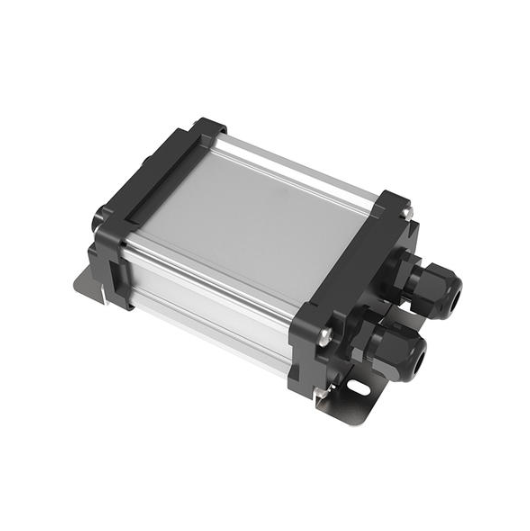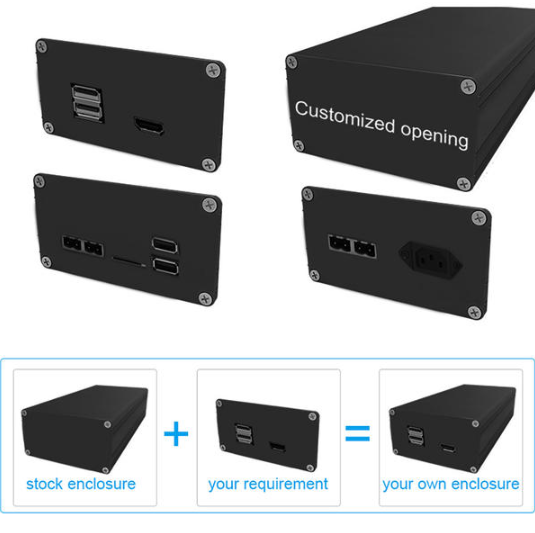Wall mount enclosures are essential components in various industries, serving as protective housing for sensitive equipment and devices. These enclosures come in different shapes, sizes, and materials, tailored to accommodate specific needs. Understanding their purpose and advantages is crucial for anyone seeking to secure and preserve electronic systems effectively. In this post, the author would illustrate the advantages of the wall mount enclosures.
What is a Wall Mount Enclosure?
A wall mount enclosure, often referred to as a wall-mounted cabinet or box, is a specialized casing designed to shield equipment, such as servers, routers, switches, and other electronic devices, from environmental factors and potential damage. These enclosures are typically installed directly onto walls or other surfaces and are crafted from robust materials like steel, aluminum, or fiberglass.
What are the Advantages of Wall Mount Enclosure?
Wall mount enclosures offer several advantages that make them invaluable across various industries:
Space Efficiency
Wall mount enclosures optimize space utilization by securely housing equipment while minimizing the footprint. They are ideal for environments where floor space is limited or costly, effectively utilizing vertical space.
Protection and Durability
These enclosures shield sensitive equipment from environmental factors like dust, moisture, and physical damage. Constructed from robust materials such as steel or aluminum, they ensure the longevity and proper functioning of enclosed devices.
Security Measures
Many wall mount enclosures come with lockable doors or panels, providing an additional layer of security. This feature prevents unauthorized access and tampering, safeguarding valuable equipment.
Customization Options
With a variety of sizes, designs, and mounting configurations available, wall mount enclosures can be tailored to specific needs. This flexibility allows for accommodating different equipment sizes and configurations.
Temperature Regulation
Some enclosures feature ventilation systems or cooling options to maintain optimal operating temperatures. This prevents overheating, which can affect device performance and lifespan.
Versatility in Applications
Wall mount enclosures find applications across diverse industries, including telecommunications, IT, industrial automation, healthcare, and more. Their adaptability makes them suitable for various environments and equipment types.
Ease of Installation and Maintenance
They are designed for easy installation and accessibility, simplifying equipment setup and maintenance procedures. This ease of access streamlines troubleshooting and upgrades.
Cost-Effectiveness
Wall mount enclosures offer a cost-effective solution for protecting equipment. They help prevent costly damages or replacements by providing a secure and controlled environment for devices.
What are the Disadvantages of Wall Mount Enclosure?
While wall mount enclosures offer numerous benefits, they also have some drawbacks that should be considered:
Limited Capacity
Wall mount enclosures have finite space limitations. Larger equipment or systems might not fit within these enclosures, necessitating the use of larger, floor-standing alternatives.
Space Constraints for Cooling Systems
While some wall mount enclosures offer cooling options, the space available for these systems might be limited compared to larger floor-mounted enclosures. This limitation could impact the efficiency of cooling mechanisms for high-powered or heat-generating devices.
Limited Accessibility
Depending on the design and installation location, accessing the equipment within a wall mount enclosure might be challenging. This can complicate maintenance and repairs, especially in tight spaces or if the enclosure is positioned at a height.
Weight Limitations
Wall mount enclosures have weight limitations determined by the strength and capacity of the wall they are mounted on. Heavy equipment within these enclosures can strain the wall or mounting mechanism, potentially causing structural issues.
Installation Complexity
Installing wall mount enclosures may require specialized tools or expertise, especially when it involves securing them to different types of walls or surfaces. Improper installation might compromise the stability and security of the enclosure.
Cost Consideration
While they are generally cost-effective compared to larger floor-standing enclosures, some high-end or specialized wall mount enclosures can be expensive due to advanced features, materials, or customization options.
Limited Flexibility in Future Expansion
If there's a need to expand the equipment setup significantly in the future, wall mount enclosures might not provide the necessary flexibility compared to larger enclosures that offer more space for scalability.
Environmental Limitations
Wall mount enclosures might not be suitable for certain harsh environments, such as areas with extreme temperature variations, excessive moisture, or corrosive elements, which could impact the durability of the enclosure over time.
Conclusion
Overall, wall mount enclosures play a crucial role in preserving the functionality and longevity of sensitive electronic equipment. Their ability to optimize space, provide protection, enhance security, and offer customization options makes them an indispensable asset across various industries. Understanding their benefits empowers businesses and individuals to make informed decisions when selecting enclosures best suited to their needs.





